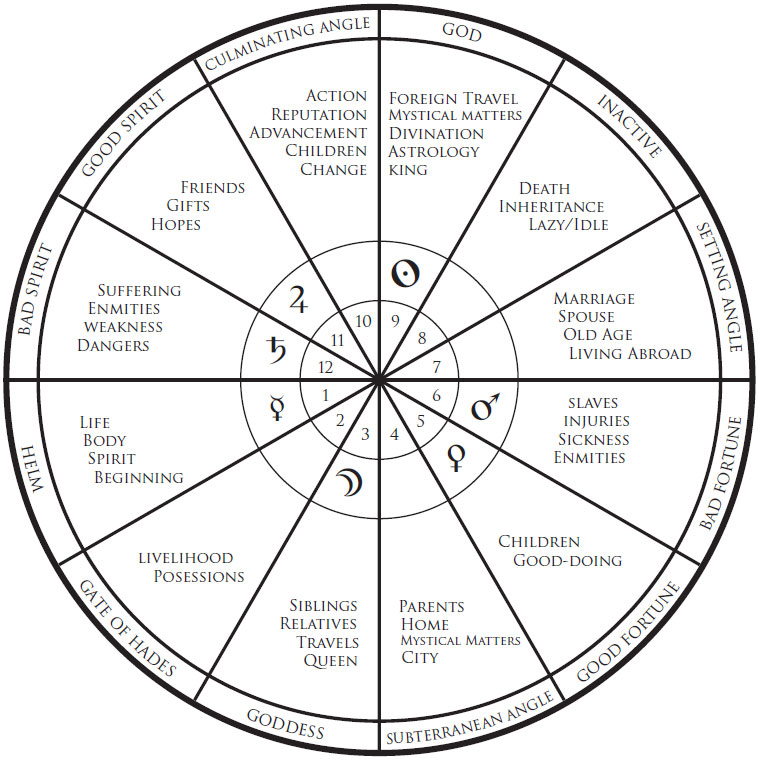Cusps:
Today
(and for the past thousand years or so)
we define cusps as "borders" (coasts),
but that is not the original meaning of the word "cusp":
it means "point" such as cuspal teeth (bicuspids)
and the point of a sword
-so originally the term cusp meant the "point" of something,
and in astrology originally the "cusp" of the house meant its "point";
now, when quadrant systems were developed,
this "point" of the house came to mean its "beginning",
which later came to mean its "border",
ie, the "border" between one house and the other.
And later astrology also began using these "borders" (cusps)
for various prognostic applications
(Charles Carter came to believe that, for timing of events, the "cusps" of the Campanus house system gave the best results,
among the various quadrant house systems)
But now notice this:
in whole sign the cusps are NOT the 0 degree "borders" of sign/houses at all,
and never were so regarded!
In whole sign, the "cusp" retained its original meaning, not as a "border" but rather as A POINT
-and that POINT (cusp) for EACH house, was the sensitive point of that house,
viz,
the sensitive point in whole sign houses
-each house
-that is the "cusp" of each house
-is a direct projection from the ascending degree.
Example:
-the ascending degree of a chart is 18 Taurus:
what are the house cusps
(sensitive points, original meaning of the word "cusp")
in the whole sign houses of this chart?
Cusp of 1st house = 18 Taurus
Cusp of 2nd house = 18 Gemini
Cusp of 3rd house = 18 Cancer
Cusp of 4th house = 18 Leo
Cusp of 5th house = 18 Virgo
Cusp of 6th house = 18 Libra
Cusp of 7th house = 18 Scorpio
Cusp of 8th house = 18 Sagittarius
Cusp of 9th house = 18 Capricorn
Cusp of 10th house = 18 Aquarius
Cusp of 11th house = 18 Pisces
Cusp of 12th house = 18 Aries
Now it is these "cusps"
(sensitive degrees, original meaning of the word "cusp" as a "point")
that are (and were) used for progressions, timing of events, etc,
and the fact is that they work for these purposes, quite well (in expert hands)
Whole sign does not use the BORDERS between houses
(always 0 degree of any sign) for anything,
but it DOES use "cusps"
(points in the house, projected from the exact ascending degree)
for timing
(and other)
delineative purposes.
Whole sign suddenly vanished (both in the West and in Vedic astrology) during the same period of time
-ie, late 8th to early 9th century
-this sudden disappearance suggests a sudden turn in astrological thinking and practices,
rather than a gradual supplanting of a less effective traditional method (whole sign)
by a new and more effective method
(rheotrius/alchabitius in the West,
and the closely related to whole sign Equal house, in Vedic astrology)
I quite agree with Waybread in the statement, "so what?" (if old time astrologers did or didn't do something)
For me, there is only 1 reason I switched to whole sign
-it worked better (FOR ME)
I could care less if it were the oldest house system (which it is)
or whether it was invented by Badda Bing at Barney's Beanery in Bayonne, 10 years ago:
only things I consider are:
-does it seem to make sense?
-does it "taste good" to me (ie, does it "feel right" to me)
-and, if yes to the above, does it work (producing delineations and predicitions) better than what I have previously been doing?
Well, whole sign did all that, for me, so I switched;
but I am not going to try to convince anyone of anything about it, except for beginners
-to you who might just be starting out, I would say:
try whole sign first, and see how well it might work for you...


